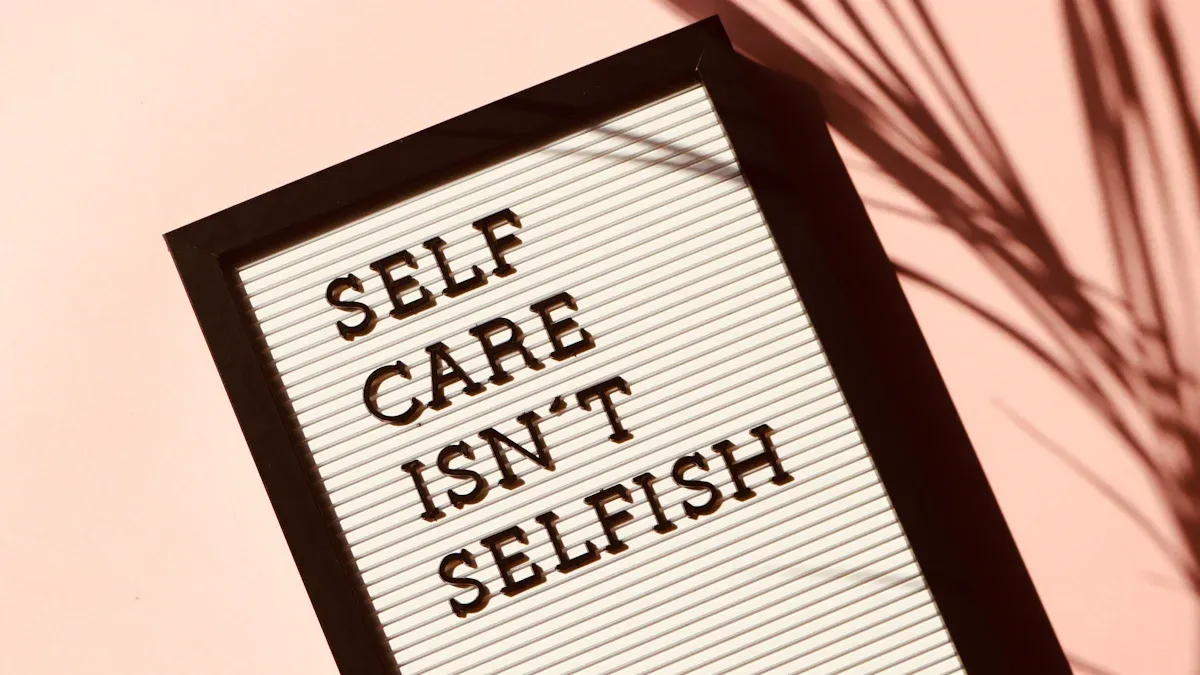You want to know how to get over someone fast. The pain feels sharp, and you just want relief. You might wonder if you can really move on quickly. The answer is yes—your brain can actually rewire itself after a breakup. When you focus on small wins, connect with others, and try new activities, you speed up healing. Even simple things like writing down your feelings or spending time in sunlight can help. If you ask yourself how to get over someone, remember: science shows that taking action works.
Healing happens when you take simple steps, one day at a time. You have the power to move forward.
Key Takeaways
Act fast by getting rid of things that remind you of your ex. Try not to talk to them much. This helps your brain start to heal. Let yourself feel sad or mad. Feeling these things helps you move on. Think of the breakup as a way to learn and grow. You can build your self-worth from this. Take care of yourself every day. Eat well, rest, and try new things to feel better. Ask friends, family, or a counselor for help if you need it. Healing takes time and has good and bad days.
How to Get Over Someone: Quick Steps
You want to know how to get over someone as quickly as possible. The first thing you need is action. Taking small, practical steps right now helps you feel more in control. Research shows that immediate actions can calm your emotions and help your brain start to heal. When you act, you give yourself a chance to move forward instead of staying stuck.
Remove Reminders
Start by clearing out anything that brings your ex to mind. This means photos, gifts, and even old messages. When you remove these reminders, you stop your brain from replaying memories over and over. Experts say that seeing reminders of your ex can keep you trapped in the past and make it harder to heal. If you want to know how to get over someone, this step is key. Unfollow or block your ex on social media. Put away things that make you think of them. You create space for new memories and give your mind a break.
Tip: Make a quick list of items or digital reminders you need to remove. Check them off one by one. Each check is a win for your healing.
Limit Contact
Cutting contact may feel tough, but it works. When you stop talking to your ex, you give yourself room to process your feelings. Here’s what happens when you limit contact:
You focus on your own healing instead of their life.
You gain clarity and see the relationship more clearly.
You start to grow and rebuild your life.
You avoid emotional ups and downs from mixed signals.
Studies show that no contact helps your brain reset. It lowers stress and helps you think more clearly. If you want to learn how to get over someone, set clear boundaries. Block their number if you need to. Tell friends you don’t want updates about your ex. This is your time to focus on you.
Allow Yourself to Grieve

Feel All Emotions
You might want to skip the pain and move on fast, but letting yourself feel every emotion is a big part of healing. After a breakup, you can go through many feelings. Mental health professionals say these feelings often follow five stages:
Denial: You may not believe the breakup happened. You might hope things will go back to how they were.
Anger: You could feel mad at your ex, yourself, or even friends. Sometimes, you just want to shout or hit a pillow.
Bargaining: You might try to fix things or make promises to get your ex back.
Depression: Sadness can hit hard. You may feel tired, lose interest in things, or want to be alone.
Acceptance: You start to see that the breakup is real. You begin to let go and look forward.
Note: You might not go through these stages in order. Sometimes, you bounce back and forth. That’s normal.
Letting yourself feel these emotions helps you heal. You don’t have to hide your feelings or pretend you’re okay. When you accept your emotions, you give yourself a chance to move forward.
Cry if You Need To
Crying is not a sign of weakness. It’s a natural way to release pain and stress. If you feel tears coming, let them flow. You might feel lighter afterward. Grieving has real benefits for your mind and heart:
You build self-esteem and feel stronger.
You learn more about yourself and what you want in a relationship.
You reconnect with friends, family, and hobbies.
You stop thinking about your ex all the time.
You grow more resilient and ready for new relationships.
Tip: Give yourself permission to cry, journal, or talk to someone you trust. Each step helps you heal and move forward.
Accept and Learn
See the Breakup as Growth
You might not feel it now, but this breakup can help you grow. When you look at your breakup as a chance to learn, you start to see new possibilities. You can rebuild your confidence and find out what really matters to you. Here’s what happens when you treat your breakup as a turning point:
You discover more about yourself and what you need to feel happy.
You build up your self-worth and learn to be kind to yourself.
You practice mindfulness and get better at handling stress.
You stop depending on your old relationship for happiness and find new ways to feel good.
You become more resilient and ready for whatever comes next.
A long-term study found that people who see a breakup as a challenge to overcome actually gain more control over their lives. At first, you might blame outside things for your pain. Over time, you start to take charge and make choices for yourself. This shift helps you feel stronger and more independent. When you focus on growth, you set yourself up for better emotional health in the future.
Tip: Try writing down one thing you’ve learned about yourself since the breakup. This small step can help you see your own progress.
Mark Lessons Learned
Every breakup teaches you something. You might not notice these lessons right away, but they show up as you heal. Many people say they come out of a breakup with a clearer sense of who they are. Here are some common lessons people learn:
You realize how strong you are, even when things get tough.
You learn to set new goals and focus on your future.
You find your own identity, separate from your ex.
You understand that moving forward is better than staying stuck in the past.
You see how important it is to take care of your body and mind.
You discover that talking about your feelings helps you heal.
You become more self-aware and ready for new experiences.
Breakups hurt, but they also help you grow. Each lesson brings you closer to the person you want to be.
Set Boundaries
Block or Unfollow on Social Media
Social media can make it hard to move on. Every time you see your ex’s posts, you might feel sad, jealous, or even angry. These feelings can slow down your healing. Experts say that blocking or unfollowing your ex helps you avoid these emotional triggers. You stop seeing updates that remind you of the past. This gives your mind a break and helps you focus on yourself.
Sometimes, just unfollowing is not enough. You might still check their profile out of habit. Blocking your ex can help you stop this cycle. It sets a clear line and protects your peace of mind. One person shared that blocking their ex was the only way they could stop thinking about them all the time. When you remove these digital reminders, you give yourself space to heal and grow.
Tip: After blocking or unfollowing, fill your feed with things that make you happy—like cute animals, hobbies, or inspiring quotes.
Avoid Unhealthy Behaviors
Breakups can make you want to escape the pain. Some people turn to things like drinking, risky behavior, or even hurting themselves. Mental health experts warn that these actions can make things worse. You might feel more stressed, lonely, or out of control. Watch out for signs like mood swings, pulling away from friends, or talking about giving up.
Here are some ways to protect yourself:
Notice if you start feeling really down or act in ways that are not safe.
Reach out to someone you trust if you feel overwhelmed.
Focus on self-care, like eating well, sleeping enough, and moving your body.
Go no contact with your ex, especially if the relationship was toxic or made you feel unsafe.
Setting boundaries is not about changing your ex. It is about protecting your own heart and mind. When you set clear limits, you give yourself the best chance to heal and move forward.
Rituals for Closure
When you want to move on, closure rituals can help you let go of the past. These small acts give you a sense of control and help you process your feelings. You turn the end of your relationship into something meaningful. Many people find that these rituals help them feel lighter and ready for new beginnings.
Write a Letter
Writing a letter to your ex—even if you never send it—can help you heal. You get to say everything you wish you could have said. You can write about your pain, your anger, or even your hopes for the future. This simple act lets you put your emotions into words. When you see your feelings on paper, you start to understand them better.
Start by writing down what you feel. Don’t hold back.
Tell your ex what hurt you, what you learned, and what you wish for yourself now.
Remember, this letter is for you. You do not have to send it.
Many people find that writing a breakup letter helps them process the end of the relationship. It brings clarity and helps you accept that things are over. You give yourself permission to move forward.
You might want to keep the letter, burn it, or tear it up. The choice is yours. The important thing is that you let your feelings out.
Symbolic Acts
Symbolic acts can turn your pain into a moment of healing. These rituals help you release emotional ties and start fresh. You might try:
Cord-cutting rituals: Use a piece of string or ribbon to represent your connection. Cut it to symbolize letting go.
Banishing bath: Take a bath with sea salt or herbs. Imagine the water washing away old feelings.
Burning sage or candles: Light a candle or sage to clear out old energy from your space.
Some people hold a small ceremony, like a goodbye party or a moment of silence. You can invite close friends or do it alone. These acts help you honor what you had and make space for what comes next.
Tip: Choose a ritual that feels right for you. Even a simple act, like throwing away an old photo, can help you feel free and ready to move on.
Closure rituals give you power over your healing. You take an active role in your own story. You show yourself that you are ready for new opportunities and a brighter future.
Focus on Self-Care

Prioritize Well-Being
Taking care of yourself is one of the fastest ways to heal after a breakup. You might feel lost or tired, but small acts of self-care can make a big difference. Start with the basics. Eat regular meals, get enough sleep, and move your body. Even a short walk or a few stretches can lift your mood. When you treat your body well, your mind starts to feel better too.
You can also try these self-care ideas:
Journaling: Write down your feelings each day. This helps you understand your emotions and calm your mind.
Self-love practices: Say something kind to yourself in the mirror. Try daily affirmations or list three things you like about yourself.
Connect with others: Spend time with friends or family who make you feel safe and happy. Laughter and support help you heal faster.
Pamper yourself: Take a warm bath, listen to your favorite music, or do something fun just for you.
Tip: Make a list of activities that bring you comfort. Pick one each day and give yourself permission to enjoy it.
Research shows that naming your emotions can actually make them feel less intense. When you notice what you feel, you start to take back control. Practicing self-compassion—being gentle with yourself—also lowers stress and helps you recover faster.
Practice Mindfulness
Mindfulness means paying attention to the present moment without judging yourself. You can start with a simple breathing exercise:
Close your eyes or look down.
Take a deep breath in and out.
Notice how your belly rises and falls.
Count to five as you breathe in, then five as you breathe out.
If a thought pops up, let it float away and return to your breath.
This practice helps you stop worrying about the past or future. Mindfulness lets you see your thoughts and feelings as temporary. You learn that pain will pass, and you do not have to believe every sad thought. Over time, mindfulness builds your strength and helps you feel calmer.
Remember: Mindfulness is not about stopping your feelings. It is about noticing them and letting them go. You give yourself space to heal, one breath at a time.
Stay Busy
Try New Activities
You might feel stuck after a breakup, but trying new things can help you move forward. When you fill your days with fresh experiences, your mind gets a break from old memories. You can start small. Take a painting class, learn guitar, or try a new sport. Even simple things like rearranging your room or starting a home project can give you a sense of accomplishment.
Here are some ideas to get you started:
Take a fitness class or go for a walk outside.
Try journaling or start a gratitude list.
Visit a museum or check out a new exhibit.
Attend a comedy show or watch funny videos.
Dance in your room or join a dance class.
Listen to podcasts about breakups and healing.
Pamper yourself with a facial or a relaxing bath.
Tip: Make a list of activities you want to try. Pick one each day. Each new experience helps you build confidence and brings a little more joy back into your life.
When you focus on self-care and new hobbies, you give your brain a chance to heal. Exercise, laughter, and creative projects all boost your mood. You start to see that life has a lot to offer, even after heartbreak.
Socialize More
Spending time with others can speed up your recovery. You do not have to face this alone. Meet up with friends for coffee, go to a sports game, or invite someone over for a movie night. The key is to surround yourself with people who make you feel supported and understood.
Studies show that high-quality social support helps you cope better and feel less stressed. When you talk to friends or family, you find new ways to solve problems and keep a positive attitude. Supportive people help you avoid getting stuck in negative thoughts or feeling alone.
Remember: You do not need a huge group. Even one or two caring friends can make a big difference.
Building new traditions or joining a group can also help. Try a book club, a volunteer project, or a hobby group. These connections remind you that you are not alone and that better days are ahead.
Shift Your Mindset
Avoid Blame
Blaming yourself or your ex can keep you stuck in pain. You might replay what went wrong or wonder if you could have changed things. This cycle makes it hard to heal. Instead, try to see the breakup as a shared experience. Most relationships end because of many reasons, not just one person’s actions.
Psychologists suggest some simple ways to break the blame cycle:
Journaling: Write down your thoughts. Notice if you keep blaming yourself or your ex. This helps you spot patterns.
Reframe your thoughts: Change harsh ideas like “It’s all my fault” to something more balanced, like “We both played a part.”
Draw a blame pie chart: Divide a circle into slices for each reason the relationship ended. You’ll see it’s not all on you.
Imagine a stop sign: When you start blaming, picture a stop sign in your mind. This helps you pause and shift your focus.
Tip: Remind yourself that healing means letting go of blame. You can learn and grow without holding onto guilt.
Embrace Positivity
After a breakup, you might feel like you lost a part of yourself. That’s normal. When you were with your ex, you built a shared identity. Now, you get to rebuild your own positive self-view. This step is key for moving forward.
Research shows that positive thinking helps you bounce back from heartbreak. When you focus on good things—like your strengths, new goals, or small wins—you start to feel better. Therapists recommend activities like:
Practicing gratitude by listing things you appreciate each day
Doing something kind for yourself, like a favorite hobby or treat
Using the 5:1 rule: For every negative thought, think of five positive or neutral ones
Studies also show that positive emotions help you recover faster and build resilience. You can try mindfulness, write about your feelings, or spend time with people who lift you up.
Remember: You have the power to shape your story. Each positive step brings you closer to a happier, stronger you.
Seek Support
You do not have to go through this alone. When you reach out to others, you give yourself a better chance to heal. Sometimes, just talking to someone who cares can make a huge difference. Support helps you see things from a new angle and reminds you that you are not the only one who feels this way.
Talk to Friends or Family
Your friends and family want to help you. They can listen, offer advice, or just sit with you when you feel sad. You might feel nervous about opening up, but sharing your feelings can lighten your load. Sometimes, you just need someone to say, “I get it,” or “You’ll be okay.” That support can make you feel stronger.
Tip: Pick one person you trust and tell them how you feel. You do not have to share everything at once. Start small and let the conversation grow.
You might find that your loved ones have gone through something similar. Their stories can give you hope and ideas for moving forward.
Join Support Groups
Support groups can help you heal even faster. In these groups, you meet people who understand what you are going through. You can share your story, listen to others, and learn new ways to cope. Many people find comfort in knowing they are not alone.
Here are some benefits of joining a support group:
You get a safe place to talk about your feelings without judgment.
You meet others who understand your pain and can offer real support.
Group members share tips and coping skills that really work.
You build new friendships and feel less lonely.
Experienced leaders guide the group and keep things positive.
You learn more about yourself and start to rebuild your confidence.
Support groups can help you find hope and meaning after a breakup. You might even help someone else by sharing your own story. That can make you feel proud and remind you that you are moving forward, one step at a time.
When to Get Help
Consider Therapy
Sometimes, moving on feels impossible no matter how hard you try. If you notice that sadness, anger, or anxiety just won’t go away, therapy can help you get back on track. You might feel stuck thinking about your ex or worry that you’ll never feel happy again. Therapy gives you a safe place to talk about these feelings and learn new ways to cope.
Many people find that their self-esteem drops after a breakup. You might start to believe you’re not good enough or fear being alone. A therapist can help you rebuild your confidence and teach you how to love yourself again. You don’t have to figure everything out by yourself.
Here are some types of therapy that work well for breakup recovery:
Cognitive Behavioral Therapy (CBT): This helps you change negative thoughts and habits. It’s great if you keep replaying memories or blaming yourself.
Narrative Therapy: This lets you see your breakup as just one part of your story, not your whole identity.
Acceptance and Commitment Therapy (ACT): This uses mindfulness to help you accept your feelings and move forward.
Group Therapy: You meet others who understand what you’re going through. You share advice and support each other.
Therapy isn’t just for “big problems.” It’s for anyone who wants to feel better and build a stronger future.
Know the Signs
You might wonder, “How do I know if I need help?” Here are some signs to watch for:
You feel hopeless or lost about the future.
You can’t stop thinking about your ex, even when you try.
Your self-worth feels low, and you doubt yourself.
You fear being alone or rush into new relationships just to fill the gap.
You notice you’re pulling away from friends or things you used to enjoy.
You have strong urges to check up on your ex or act impulsively.
If these feelings last and make daily life hard, it’s time to reach out. Therapy can help you process your grief, learn healthy coping skills, and find your strength again. Remember, asking for help shows courage. You deserve to feel better and move forward with hope.
Handling Setbacks
Expect Ups and Downs
Healing after a breakup does not follow a straight line. Some days, you might feel strong and hopeful. Other days, sadness or anger can sneak back in. This is normal. You are not failing if you have a rough day. Everyone faces ups and downs during recovery.
You might wake up feeling okay, then see something that reminds you of your ex. Suddenly, old feelings rush in. That does not mean you lost all your progress. Your emotions can change quickly, and that is part of the process. Try to notice these shifts without judging yourself. Remind yourself that tough moments will pass.
Remember: Setbacks do not erase your growth. Each day, you move a little closer to feeling better, even if it does not always feel that way.
Coping on Hard Days
Some days just feel heavier. You might want to hide or give up. On those days, simple actions can help you get through.
Let yourself feel sad or angry. You do not have to pretend everything is fine.
Talk to a friend, family member, or counselor. Sharing your feelings can lighten your load.
Take care of your body. Eat regular meals, get enough sleep, and move around, even if it is just a short walk.
Try something new or fun. A new hobby or activity can distract your mind and bring a little joy.
Think about what you learned from your relationship. Honest reflection can help you grow.
Use tough feelings as fuel for positive change. You can turn pain into strength.
Accept people as they are. Let go of wishing things were different.
Focus on understanding yourself, not blaming anyone.
Tip: Make a “bad day” toolkit. Write down things that help you feel better, like calling a friend, listening to music, or going outside. Keep it handy for when you need a boost.
Setbacks happen, but you have tools to handle them. Each hard day you get through makes you stronger and more ready for what comes next.
Healing after a breakup takes time, just like healing a physical injury. You might feel pressure to rush, but it’s okay to move at your own pace. Many people believe you should hide your feelings or get over it fast, but real progress comes from facing your emotions and taking small steps each day. When you follow tips on how to get over someone, you give yourself the best chance to grow stronger and happier. Remember, you have the strength to move forward—one step at a time. 🌱
FAQ
How long does it usually take to get over someone?
Everyone heals at a different pace. Some people feel better in a few weeks. Others need months. You might notice small changes each day. Give yourself time. Healing is not a race.
Should I stay friends with my ex?
Staying friends right away can slow your healing. You need space to move on. If you want to be friends later, wait until you feel strong and happy on your own.
What if I see my ex at school or work?
You can keep things polite and simple. Say hello if you want, but do not start long talks. Focus on your tasks. Spend time with people who support you.
Is it okay to date someone new soon after a breakup?
You can date when you feel ready. Make sure you want a new connection, not just a distraction. Take your time. Listen to your feelings.
Why do I still miss my ex even after trying everything?
Missing your ex is normal. Your brain needs time to adjust. Keep using healthy habits. Talk to someone you trust. You will feel better with time.



Pingback: How Building Confidence Makes You More Attractive to Others
Pingback: What Is a Situationship and How Does It Differ from a Relationship